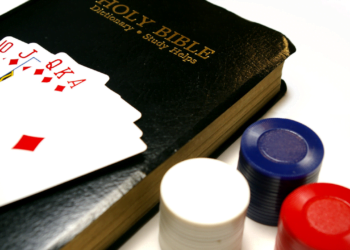No products in the cart.
What is the significance of Easter for Christians?
This post contains paid and/or affiliate links. I make a small commission at no extra cost to you. Please see our Privacy Policy.
Easter is a deeply significant holiday for Christians around the world. It commemorates the Resurrection of Jesus Christ, who rose from the dead three days after His crucifixion. Easter is a time of great joy and celebration, as it marks the ultimate triumph of Jesus over death and confirms His teachings.
For Christians, Easter holds profound spiritual meaning. It represents the fulfillment of God’s promise and affirms Jesus as the long-awaited Messiah. Without the Resurrection, there would be no Christian faith. Easter reminds us of the transformative power of Jesus’ sacrifice, His victory over sin, and the promise of eternal life for all who believe.
Throughout history, Easter has been celebrated with various traditions and symbols. From Easter eggs, symbolizing new life and rebirth, to the Easter Bunny, representing the arrival of spring, these customs have become intertwined with the religious observance of Easter. While some traditions have pagan origins, Christians have found ways to incorporate them into celebrating Jesus’ resurrection.
Key Takeaways:
- Easter is a central holiday in Christianity, celebrating the Resurrection of Jesus Christ.
- The Resurrection is the foundation of the Christian faith and affirms Jesus as the Messiah and Son of God.
- Easter traditions, such as eggs and the Easter Bunny, have become part of the religious observance.
- Easter symbolizes victory over death, the forgiveness of sins, and the promise of eternal life.
- During Easter, Christians reflect on the significance of Jesus’ sacrifice and renew their faith.
The Christian Meaning of Easter
The significance of Easter for Christians is deeply rooted in the resurrection of Jesus from the dead. This miraculous event solidifies Jesus’ identity as the Son of God and signifies the fulfillment of His teachings. The resurrection stands at the core of the Christian gospel, serving as the foundation for our faith and the message we proclaim to the world.
When Jesus rose from the dead, His disheartened followers became courageous witnesses of His resurrection. These apostles, who had initially doubted and feared, became steadfast in their devotion to spreading the news of Jesus’ victory over death. Their encounters with the risen Christ assured them that Jesus was the long-awaited Messiah and the King of a new Jerusalem.
The resurrection of Jesus symbolizes the ultimate triumph over sin and death. Jesus offers redemption and the promise of eternal life to all who believe in Him through His sacrificial death and subsequent resurrection. The resurrection is a powerful testament to God’s love and the victory of good over evil.
As Christians, the celebration of Easter holds profound meaning for us. It represents the historical event of Jesus’ resurrection and our hope for a new life in Christ. Easter serves as a reminder of the transformative power of faith and the assurance of eternal life for those who trust in Jesus.
So, as we observe Easter, let us reflect on the Christian meaning of this significant holiday. Let us rejoice in the resurrection of Jesus, embrace His teachings, and hold fast to the hope we have in Him.
Easter Traditions and Symbols
In addition to its religious significance, Easter is marked by various traditions and symbols that have become an integral part of the holiday celebration.
The most popular symbol of Easter is the Easter egg. With roots in both pagan and Jewish customs, eggs have long been associated with fertility and birth. The act of decorating eggs has a rich history, and it is believed to have originated from the story of Mary Magdalene presenting an egg to Emperor Tiberius. Today, decorating Easter eggs is a cherished tradition for many families, with various methods such as dyeing, painting, and decoupage.
ADVERTISEMENT
Another iconic symbol of Easter is the Easter Bunny. The Easter Bunny’s association with the holiday stems from the abundance of rabbits seen during spring, a time of new life and renewal. This adorable creature has become a beloved character, often depicted as a friendly bunny delivering Easter eggs to children. The Easter Bunny brings joy and excitement, primarily through the age-old tradition of Easter egg hunts.
Non-religious Easter traditions have also gained popularity over the years. One notable example is the White House Easter Egg Roll, an annual event on the White House lawn where children roll Easter eggs with spoons. This tradition has been a part of American culture since the early 19th century, offering a fun-filled day for families to enjoy.
Additionally, the commercial aspects of Easter have become prominent, with the sale of candy and greeting cards. Easter candy, such as chocolate eggs and marshmallow treats, is often exchanged and enjoyed during the holiday. Greeting cards featuring Easter-themed illustrations and heartfelt messages are exchanged among loved ones, adding a personal touch to celebrations.
Easter traditions and symbols, both religious and non-religious, contribute to the festive atmosphere and the joy and renewal accompanying this memorable holiday.
Conclusion
Easter holds immense significance for Christians as it commemorates the resurrection of Jesus Christ and His triumphant victory over death. This sacred holiday is a time of celebration, reflection, and renewal of faith for believers.
The resurrection of Jesus is the cornerstone of the Christian faith, as it affirms His divine identity and validates His teachings and promises. Jesus conquered sin and death through His resurrection, offering the hope of eternal life to all who trusted Him.
Advertisement. Scroll to continue reading.
While Easter traditions and symbols, such as Easter eggs and the Easter Bunny, may have origins in pagan or non-religious customs, they have become intertwined with religious observance. These traditions serve as reminders of new life and renewal, mirroring the spiritual significance of Easter.
Whether attending church services, participating in Easter egg hunts, or simply reflecting on the profound spiritual meaning of Easter, this holiday stands as a central and defining moment in the Christian faith. Easter reminds us of the immense love and sacrifice of Jesus, the joy of His resurrection, and the eternal hope He offers to all who believe.











